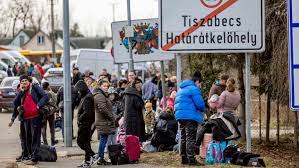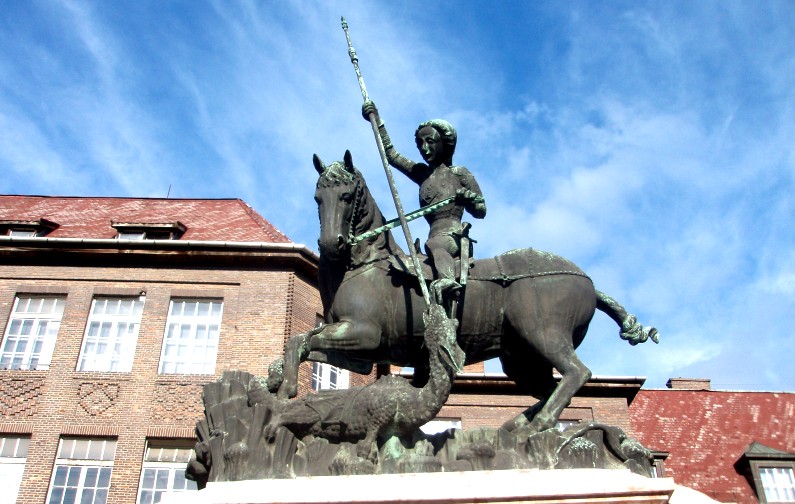Vodka? A cigarette? There is only one box left. Take it away, I'll give it to you for less! - these and similar phrases are addressed to us by the women in Tiszabec, near the Ukrainian-Hungarian border. Looking at them, it seems and almost gives me a good feeling that everything around here is the same. However, near the national border, the vicissitudes of the war will soon come to life.
Young men are waiting around us, most of them are heading towards the unknown with only one small suitcase each. One of them fled all the way from Kharkiv, and unlike the boys from Donbas who were with him, he somehow managed to cross the border.
The young man asks our driver for help and complains that he only has twenty euros in his pocket, he doesn't know where to go or what to do with it. The driver recommends that you try to visit a local aid point, and if necessary, he will take you to the BOK hall in Budapest, where refugees are cared for, in exchange for a nominal sum.
As soon as his relatives come for us from the Ukrainian side, he is heading towards the capital again. As it turns out, since he will only turn sixty this August, he will be called up easily, which is why, like the majority of Transcarpathian Hungarian men, he has not crossed the border for months.
The conscripts are taken en masse to the Subcarpathian settlements, and practically everywhere on the street, in cafes, pubs, workplaces, beaches, and even "handed out" over the phone. And the bodies designated for this do not shy away from the most unscrupulous methods.
In addition to the enlistment of men aged 18-60 - which causes the greatest fear among the locals - the actual causes of the war, the economic effects, and those acquaintances who became victims of the fighting in eastern Ukraine in a few days are also discussed.
Last but not least, there is the situation of broken families, in which he and I are all involved in some way. For the men conscripted, the war means voluntary exile to a foreign country for who knows how long, and for the women an endless series of tasks to be solved alone. However, the saddest situation is the situation of small children growing up without a father, for whom their father becomes a stranger every week.
Of course, there were also those who, even at the beginning of the war, left their priests and priests behind and joined together, or followed the head of the family within a short period of time, but many only travel to their husbands for a week or a weekend. It is clear from their reports that the younger children, because they do not recognize them, are no longer even willing to kiss their father.
When you arrive in the village, you are greeted by a view of deserted streets, empty cafés and restaurants without guests.
As one restaurateur says, they are only open so that their employees have some money. Most of the residents live behind closed gates. We have to deliver a package to one of the families, but we can't even get into the yard of the house, and they don't even respond to multiple signals and calls. The parcel is finally taken by the woman next door, who tells us that the family does not go out during the day, fearing calls. The fear is justified, as it is known that six hundred invitations will be delivered that week.
I didn't even get out of the car, the realization quickly hit me in the face: the once bustling settlement of more than eight thousand people, where I have the most beautiful memories, has now become a ghost town. And its inhabitants - like those of the Subcarpathians - became refugees, refugees, stateless people, all because of a war that they actually had nothing to do with.
Source: Magyar Nemzet/Elek Nikoletta
Featured image: Janos Kummer/Getty Images













